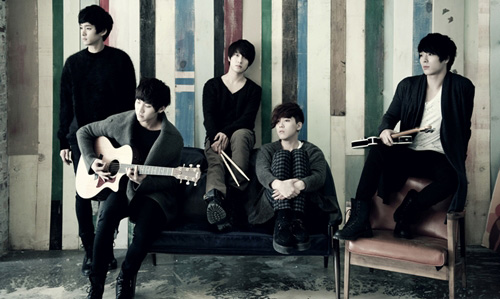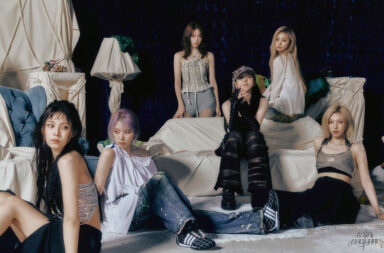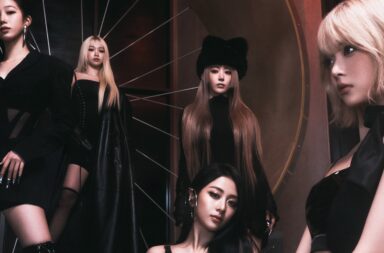If you have a moment, go and check out the iTunes current bestsellers, or the Top 10. I’m looking at the USA and UK Top 40 Singles (sales and airplay) and the variety is abundantly clear. There is a mix of soloists, collaborations, some groups, dance, pop, rap, dubstep, alternative, indie rock… the charts conform to a certain extent, but there is no denying the different genres struggling for space. However if we look at the daily Seoul FM requests it is dominated almost exclusively by dance pop such as SHINee and 2NE1, as well as occasional ballads like 2AM or bands such as FT Island. Of course, this will be a biased account, but a good indicator of what’s popular with Korean and Western youth culture right now, and highlights the lack of variety in the Korean music industry.
I struggled to define instrumental-based groups such as FT Island and CN Blue, as you could argue they are not technically K-pop. Salima, who 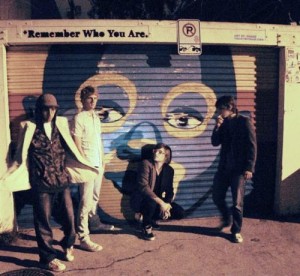 recently attended their LA concert, was surprised by how hardcore rock some of it sounded. Despite this, I think considering the way they conform to many of the K-pop stereotypes – such as appearances in CFs, variety shows, and the presentation of the music they can be classified as K-pop in this instance. They just bridge the gap between mainstream and indie, and gap that is far wider then Western music. Thanks to bands like The Killers and Foster the People, “indie” music has become de rigour, thereby creating an oxymoron, for some people would say that there is no such thing as true popular indie music. But that’s a debate for another day. The point is that the high pressure to conform and the lack of flexibility in K-pop means Korean indie is probably going to stay buried for a while, though thank goodness for Indie Gem (someone better pay me for that plug). It’s not necessarily a bad thing; it means it gives the artists a chance to create music untouched by the pressure of K-pop artists to produce something at once original and yet perfectly in keeping with the rest of the charts. Yes, of course it would be nice to hear some of the quality that is being produced by these low profile artists of every style, but even by doing that they run the risk of being called sell-outs; think of the furious backlash Tablo received when he left the far smaller company to join the high budget YG. In fairness it was hardly like he hadn’t enjoyed mainstream success before, but hip-hop purists saw it as a betrayal.
recently attended their LA concert, was surprised by how hardcore rock some of it sounded. Despite this, I think considering the way they conform to many of the K-pop stereotypes – such as appearances in CFs, variety shows, and the presentation of the music they can be classified as K-pop in this instance. They just bridge the gap between mainstream and indie, and gap that is far wider then Western music. Thanks to bands like The Killers and Foster the People, “indie” music has become de rigour, thereby creating an oxymoron, for some people would say that there is no such thing as true popular indie music. But that’s a debate for another day. The point is that the high pressure to conform and the lack of flexibility in K-pop means Korean indie is probably going to stay buried for a while, though thank goodness for Indie Gem (someone better pay me for that plug). It’s not necessarily a bad thing; it means it gives the artists a chance to create music untouched by the pressure of K-pop artists to produce something at once original and yet perfectly in keeping with the rest of the charts. Yes, of course it would be nice to hear some of the quality that is being produced by these low profile artists of every style, but even by doing that they run the risk of being called sell-outs; think of the furious backlash Tablo received when he left the far smaller company to join the high budget YG. In fairness it was hardly like he hadn’t enjoyed mainstream success before, but hip-hop purists saw it as a betrayal.
Similarly with solo artists, they dominate the Western charts, but are near non-existent in K-pop. And unless there is a sudden influx of hungry, talented and successful soloists, then the fact there aren’t any will mean that remains. It’s a vicious circle: the charts dictate the companies, and companies dictate the fans, and fans dictate the charts.
 Of course, it is worth considering that Korea is simply too small to support the assortment of genres that the West can, especially the US. It doesn’t matter if you are a fan of folk music or avant-garde rock or political hip-hop; there is room in America to facilitate that. In Korea however, K-pop is by far the easiest music to listen to because it is the one with all the advertising force behind it. Not to suggest that K-pop listeners are lazy, but instead not fortunate enough to live in a country where many different kinds of music are available. With not enough people showing interest in other genres, the music industry cannot support rock music like it can in the West. Companies like Jungle Entertainment and YG have gone some way to popularising hip-hop, especially considering TOP, G-Dragon and Tiger JK were originally underground artists. G-Dragon in particular has been praised for writing many of Big Bang’s most successful songs – a move more often associated with indie and rock groups. For example, while I have put CN Blue in the K-pop category, Yong-hwa and Jong-hyun regularly compose for the albums, in keeping with the majority of similar Western bands and more hardcore rap artists. On the flip side, JYJ have started writing their own songs and often members like SHINee’s Jonghyun will write their own lyrics, while actual composing is rarer.
Of course, it is worth considering that Korea is simply too small to support the assortment of genres that the West can, especially the US. It doesn’t matter if you are a fan of folk music or avant-garde rock or political hip-hop; there is room in America to facilitate that. In Korea however, K-pop is by far the easiest music to listen to because it is the one with all the advertising force behind it. Not to suggest that K-pop listeners are lazy, but instead not fortunate enough to live in a country where many different kinds of music are available. With not enough people showing interest in other genres, the music industry cannot support rock music like it can in the West. Companies like Jungle Entertainment and YG have gone some way to popularising hip-hop, especially considering TOP, G-Dragon and Tiger JK were originally underground artists. G-Dragon in particular has been praised for writing many of Big Bang’s most successful songs – a move more often associated with indie and rock groups. For example, while I have put CN Blue in the K-pop category, Yong-hwa and Jong-hyun regularly compose for the albums, in keeping with the majority of similar Western bands and more hardcore rap artists. On the flip side, JYJ have started writing their own songs and often members like SHINee’s Jonghyun will write their own lyrics, while actual composing is rarer.
Because there is so little room in the industry genre-wise, it begins to explain the sheer intensity of K-pop. It’s a huge and rather sudden phenomenon in a short space of time which completely blows everything else out of the water. Since then the companies have been working to make sure K-pop stays in the forefront all the time, to be pushed aside essentially means failure because there is nowhere to go, not when the West has yet to fully accept it.
This means that all K-pop idols are often tarred with the same brush, even if the difference in quality is poles apart. If we say that “Gee” is one of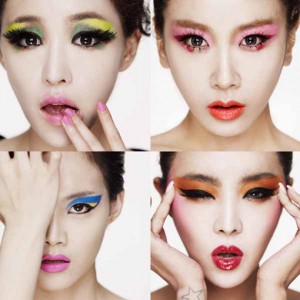 the most well-known songs in the West, then many Westerners will see that a Brown Eyed Girls song is also from a Korean girl group and assume that the sounds are pretty much the same, even if they are not. But this is not exclusive to K-pop; arguably Adele and Nicki Minaj are both pop artists, but there is no chance of getting them mixed up. It is because the West is known to have a far wider range of music while Korean music is so compressed; unfortunately this will have a negative impact on its expansion worldwide. All Korea is offering is hip hop and K-pop, meaning most international fans won’t hear the alternatives.
the most well-known songs in the West, then many Westerners will see that a Brown Eyed Girls song is also from a Korean girl group and assume that the sounds are pretty much the same, even if they are not. But this is not exclusive to K-pop; arguably Adele and Nicki Minaj are both pop artists, but there is no chance of getting them mixed up. It is because the West is known to have a far wider range of music while Korean music is so compressed; unfortunately this will have a negative impact on its expansion worldwide. All Korea is offering is hip hop and K-pop, meaning most international fans won’t hear the alternatives.
This method isn’t going to go away, especially considering the power companies have now and the fact that we as fans have grown to expect a certain sound, even if there are variants of it. The success of K-pop proves this theory and its practice works, and it is convenient to know that, for K-pop fans, your favourite genre of music is the one that will be in the limelight, without having to share it.
